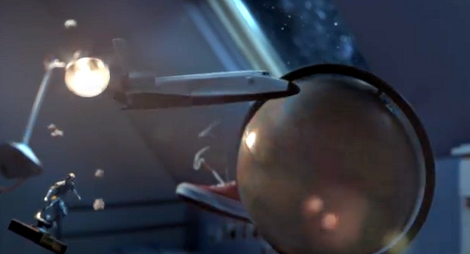
If you’re between the ages of 14 and 18, or have a child who is, here’s a chance to put a project into space. NASA is partnering with YouTube, Lenovo, and a few other entities for a contest that challenges participants to dream up low-gravity experiments. You can enter as an individual or in teams of up to three people, and may put forth up to three experiment ideas for judging. Getting in on the first round is as easy as recording and uploading a video. You’ll need to state a scientific question or principle you want to test, a hypothesis of what can be learned, and a method for testing it.
As with most of the projects we encounter, the seminal idea is always the toughest part. And since the folks here at Hackaday are too old to enter, we thought we’d propose throwing around some ideas in the comments to get the ball rolling (the contest FAQ says it’s okay to get help from others so we’re not ruining it for everyone). We’ll go first.
It looks like experiments can be Biology or Physics related, and can’t use hazardous chemicals, weapons, or anything sharp. We’d love to see some tests that measure how well electronic sensors work in the microgravity. For instance, can you use a gyroscope sensor reliably in micro-gravity? What about an electronic compass; does it always point toward earth? What about robotic propulsion? We’d love to see a minature ROV swimming through the air like a water-bourne vessel would on earth.
Your turn. Leave a comment to let us know what you’d do if you could enter. Oh, and we’ve also embedded the contest promo video after the break.
Continue reading “Hackers Age 14-18 Can Compete To Put Their Project Into Space” →












